
by Editor | Feb 20, 2023 | Business Ideas, Employment, Entrepreneurship, Private Jobs, Social Entrepreneur
Entrepreneurial activity has percolated through every sphere of human endeavor. Of late the students coming from Madrassas or Islamic seminaries, those who mostly look for the jobs in mosques and seminaries as Imams, Muazzins (those calling faithful for prayers through reciting azan), etc. have been currently mooted to rope in for business trainings in West Bengal by Maeeshat Foundation – a Mumbai based NGO.
The Foundation has floated the idea of pushing such youthful Islamic scholars in business activities – those who couldn’t find employment in mosques and seminaries due to limited vacancies available. It looks forward to impart crash courses on entrepreneurial activities of varied shades to them.
Danish Reyaz – the director of Maeeshat Academy (Mumbai) and popular among theocrats in the city as an emerging educational elite, says: “These youth who lie idle due to lack of job usually fall prey to illicit temptations and at times cause embarrassing situation for their parents and seniors. It also gives bad name to the institutions from where they have acquired degrees. In the end, it is Islam that bears the brunt of their trespass”
“In the past, a few among them turn out to be loose cannons and involved in nefarious activities in order to earn money through illegal channels despite knowing well that Islam prohibits earning through this route.”
Social activist, politician and president of Islam Gymkhana Mumbai Advocate Yusuf Abrahani, believes religious teachings doesn’t exclude modern education and commerce. “It’s a painful irony that most of us think that religion is solely restricted to morality and prayers, but the fact is that the Islamic teachings include trade, commerce, modern education, and also guides faithful in multifarious ways to develop scientific temperament.”
Advocate Yusuf Abrahani says Google has launched an app called Coursera with tagline – ‘Learn without limits’, which claims over three thousand courses, specializations and professional certificates that too in throwaway prices. Those interested could get their desired course from the site too.
Besides, the Imams will get crash course on modern education, science, English and mathematics in order to enable them to teach children and thus get fairly remunerated.
Training to sharpen skill
Danish says, “The motive behind this is to arrange training workshops for Imams in order to teach them English, Hindi, Mathematics, and Science up to the 5th-grade level so that they are capable of providing tuition services in mosque itself.”
This will help in connecting Muslim families to mosques and getting qualified teachers inside the mosque. This will also be a very reliable source of income for the Imaams. Additionally, the workshops will also provide training on managing small stores of provisions of daily needs like miswaak, soap, toothpaste, dates, honey, etc.
This will include training on inventory management, accounting, and customer service. The workshops will be conducted by experienced professionals with expertise in these areas.
Danish says, “We have proposed to conduct these workshops at locations convenient for Imams, such as the Mosques or nearby community centers or Schools. The workshops will be conducted on weekends or other convenient days and times, to minimize disruption to Imams’ religious chore.”
There are a plethora of Muslim habitations across the country that reel through worst poverty, such as Malda, Murshidabad, Dinajpur, Nadia in West Bengal and similar places elsewhere where this project will trigger hope for the teeming hopeless. The holy month of Ramadan is merely sixty days away and this would be an opportune moment to learn the tricks of the trade and start the work.
M Azizur Rehman, director Tarbiyah Cambridge International School in Malda laments, “Due to immense poverty the Imams in this region at times couldn’t even afford two times meal. This is quite heart-wrenching. There’s a great need to establish Maeeshat Foundation’s WB chapter to address the problem of our area.”
It’s not only Bengal but similar poverty stricken pockets across India need the Foundation’s attention.
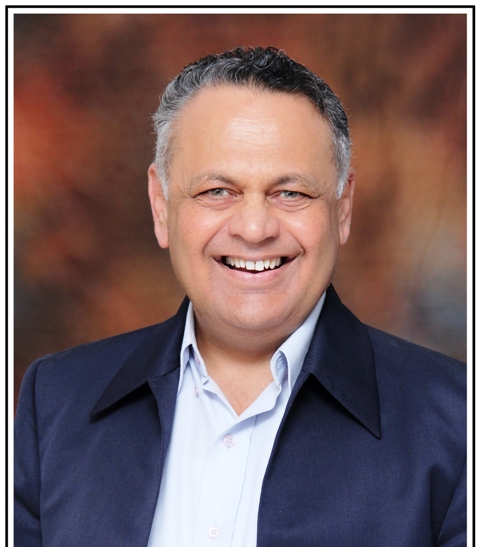
by Editor | Apr 30, 2022 | Danish Reyaz, Opinion, Opinions
By Danish Reyaz | Maeeshat | Mumbai
Defeating the travails of poverty, if a man achieves success with sheer hard work and yet shies away from glorifying himself, he surely must be big-hearted. Dr. P.A. Inamdar from Maharashtra is one such great human being.
He is a successful Promoter builder and as well as a banker. However, most significantly, he is a visionary educationist and a philanthropist dedicated to working for the poor, needy students of all communities for their welfare and education.
Furthermore, he is a public intellectual with an excellent grasp of various subjects such as law, Indian constitution, all religion, education, agro-economics, social welfare , minorities Educational rights of Religious & Linguistic minorities under Article 29 & 30 of the constitution of India, of all religion, Hindu, Muslim, Christian, Jains, Sikhs, Buddhist, Parsis & Jews and more.
As elected President of Maharashtra cosmopolitan Education society , Pune he is a pivotal figure at Pune-based Azam Campus, a top-quality nationally know education and learning hub for all minorities. He is also instrumental in establishing many other educational trusts and institutions in different parts of the country.
His abundant contributions to education had led him to be the Government of India established Maulana Azad Foundation, New Delhi, as Vice-President and member of the Planning Commission on higher education, along with many such coveted posts.
Despite having multiple feathers on his cap, Mr. Inamdar remains modest and unassuming.
“All thanks to Allah Subhanahu Wa Ta’ala ,who enabled me to chase education and knowledge even in the worst of times and made me pay back to the society in whatever ways I could,” says Inamdar in all humbleness and gratitude to the Almighty.
While he is modest and cares a fig for personal glorification, he is exuberantly dedicated to his mission in life, i.e., working for the communities welfare and education of poor, needy and deserving.
He is an enthusiastic man loaded with innovative ideas and indomitable zeal to take the such communities forward.
A pragmatic leader
Uncharacteristic of other Muslim leaders, Mr. Inamdar doesn’t believe in painting a dismal picture of the past performance of the Muslims. But, according to him, prior to 1950 1% of Muslim and other communities girls were going to school after Dr. Babasaheb Ambedkar’s Constitution today i.e. 2022, 75% girls of all communities are going to schools he sincerely feels, dwelling on the negatives can impair all and educationally backward poor communities chances of progress & bright future.
He says, “To move forward we must first recognize that as a community we and other financially and educationally poor have done well since our Constitution came in 1950. Now No one can take that away.”
“It is the confidence of the past that will propel all of us to do better in the future.” He adds with a lot of conviction.
He is a rare breed of intellectual who kindles hope and sparks enthusiasm among the all community youths.
He says, “We all have suffered enough from the inferiority complex. Now, we have to talk the language of optimism and hope.”
There is no speech by him that talks about the negative of the past. Moreover, the speakers at functions held in Azam Campus are invariably told not to mention failures and victimhood but the positives so that the youths are filled with a “yes we can do it” attitude.
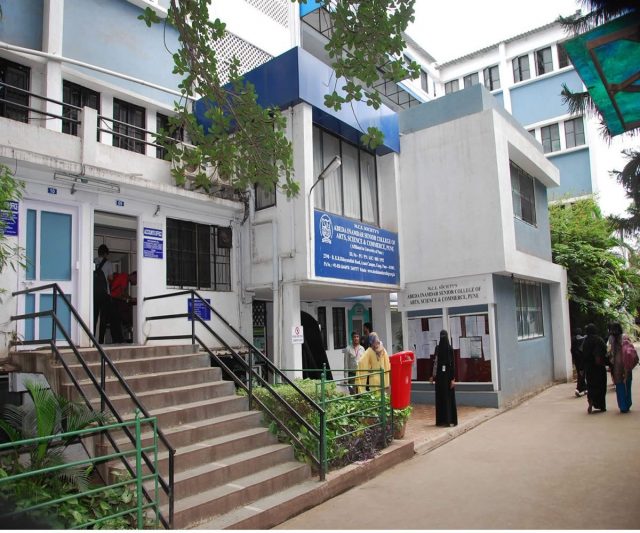
Poverty-stricken early life
To achieve so much in life, Mr. Inamdar had to wrestle against acute poverty in his childhood. “Today, I own almost everything. You name it, and I have it. But these things haven’t come easily to me,” he says.
Although his father was a police inspector by profession, on retirement from the service. He started a business moving back to his hometown Bijapur (now in Karnataka).
But as ill-luck would have it, his father’s business tanked, and the family consisting of 13 siblings slipped into extreme poverty. Nevertheless, despite every odds, Mr. Inamdar managed to pass his matriculation from a Marathi Vidhalay High School of Bijapur(Now Vijaypur) with flying colours.
Recalling those days, he says, “He has seen the kind of poverty you wouldn’t have seen, or heard, or even read in a book.”
With mere 15 rupees in his pocket, he arrived in Pune in 1965, unsure about his future. He had come to the city to study, but, with no money in hand, he had to manage on an ‘earn and learn’ basis.
Mr. Inamdar completed his BA (Hons) from the prestigious Shivaji University, Kolhapur, and ever since, there has been no stopping him.
Successful Promoter and Builder
Mr. Inamdar has varied colours of achievements, but his first job was at the land records department. After 15 years of service and amassing immense knowledge about land matters, he took a plunge into the real estate business on a partnership basis.
His role was to provide real estate knowledge and devise business strategies for his partners who lacked that knowledge but had the money to finance the projects.
Mr. Inamdar was an astute realtor and became successful in a very quick time. He amicably parted ways to form his own real estate company called Ahura Builders, one of the best Builders and Developers in Pune.
His reputation in the field can also be gauged by the fact that he has served as President of the Promoters and Builders Association i.e CREDAI of Pune for 7 years. Also, he was elected as Vice President of the Maharashtra Chamber of Housing Industry.
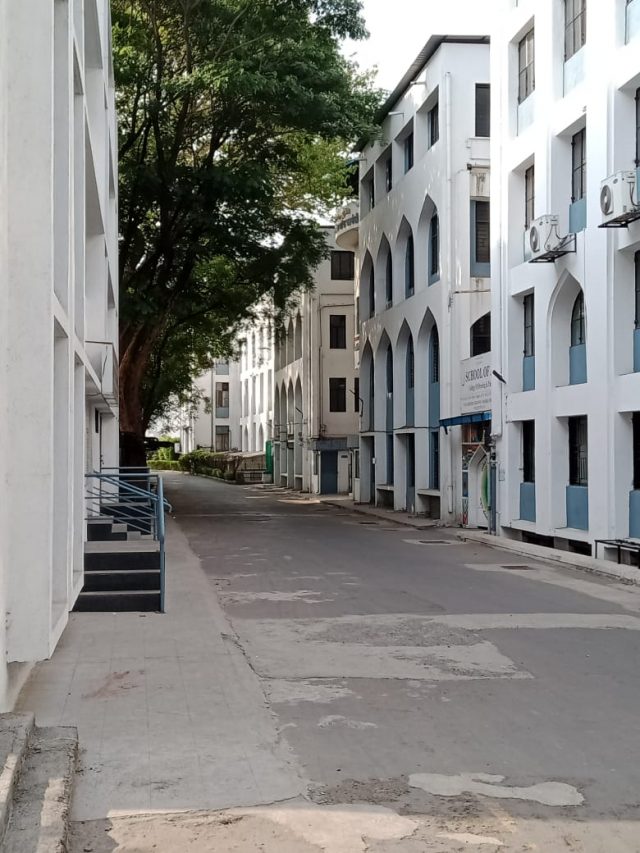
A smart banker
His genius was also on display in the banking sector after being elected as Chairman of Muslim Co-op Bank, Pune.
The bank was in financial doldrums with only Rs. 6 Crores deposits, but after Mr. Inamdar took over and set the ball rolling, the bank’s deposits increased to 400 Crores within a few years. What’s more, the bank’s branches increased from 4 to 10, widening its client base and income. Once stagnant in growth, this Pune Co-op Bank is now a thriving bank, serving first and foremost the poor and the needy. It became possible because of Mr. Inamdar’s vision and befitting execution of his ideas. Bank has 26 branches with Rs. 6.50 Crore deposits Mr. Inamdar has never taken loan through out his life not even “Hand Loan” either from his or any other bank.
A sharp legal luminary
Mr. Inamdar has a sharp legal brain as well quashing of state Govt. quota in private unaided educational institutions to many other important cases, he has always taken the cudgel on behalf of the victims, of all communities.
It was his dogged fight that helped to include as many as 80 Muslim communities under the OBC category by the state of Maharashtra. It remains a seminal work that one could have done for the community.
He is an expert in laws related to linguistic and religious minorities, Other Backward Communities (OBCs), Co-operative Banking and Co-operative Societies Acts, Land Acquisition Acts, Construction Industry, laws etc.
Given Mr. Inamdar’s wealth of knowledge in the matter of laws, it is immaterial to ask whether he has a qualified law background or not. No, he doesn’t have one.
But he is such an authority on law-related matters that people from all walks of life, including the professionals and the government officials, consult him on various legal issues.
“I am approachable to all, however, people from linguistic and religious minorities and OBCs are more than welcome. Whether it is about their right to establish and administer educational institutions or any other rights guaranteed under the constitution I am always ready to guide and fight for their causes.” Inamdar says quite assuredly.
A health care entrepreneur
A versatile achiever, Mr. Inamdar has also dabbled in the health care system. “Hospitals are as important as the schools and colleges & financial instiutions , I would say even more. What value is education or wealth if humans suffer from diseases?” says Inamdar.
According to him for Poor & needy please provide 1) Education 2) Financial Support 3) Health care facilities. By this your responsibility for poor is satisfied.
His Inamdar Multispecialty Hospital at Pune is one of the best hospitals, providing quality health care to all at an reasonable cost.
Mr. Inamdar has roped in a distinguished panel of doctors equipped with advanced medical tools and equipment to treat patients. No wonder the hospital has a high success rate in sending patients back home smiling.
Mr. Inamdar makes it a point to donate generously to establish hospitals elsewhere in India and other public health causes in the same way as he does for educational institutions and charitable trusts. 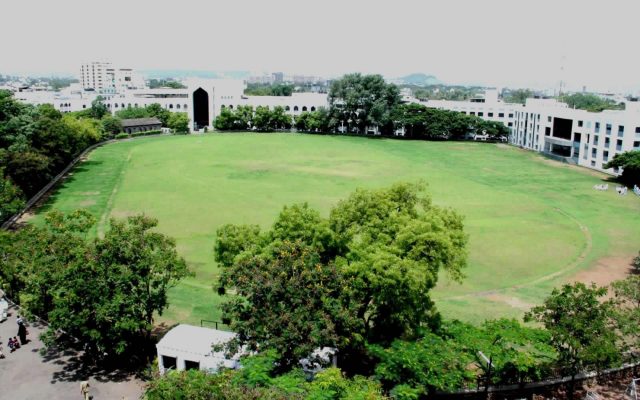
Transforming minority education
Mr. Inamdar is a man with impeccable commitment and passion for serving the people. No doubt, he has been doing laudable works in various areas of public interest, but it is the education field where he has poured most of his blood, sweat, and tears.
The Azam Campus stands as testimony to his steadfast commitment to revolutionize education for poor.
Centrally located in Pune on sprawling 24 acres of land, the Azam Campus today is a wellspring of modern education, producing thousands of poor students who serve the country and abroad in various capacities every year.
The Azam Campus derives its name from Haji Ghulam Mohammed Azam’s a Mumbai-based Gujrati businessman who provided the fund for the land and infrastructure in 1925.
Hon’ble Haji Gulam Mohammad Azam’s main aim was to provide education to the students from the Muslim minority and other weaker sections in Pune, the city in those days which was fast becoming a hub of education back then.
In 1948 the campus came under the Maharashtra Cosmopolitan Education Society (MCES). Azam Campus, since the beginning, it was performing decently, but the real transformation came about only after Mr. Inamdar was elected as its president.
He has been getting elected as its president since 1982 till today on the back of his stellar work for the campus till today.
“I know how poverty can affect one’s education. I have seen that from very close quarters. I don’t want today’s generations, especially the poor, to go through that hardship,” says Inamdar.
He further adds, “It is my mission to make available finest education to the poor and the minority so they can compete with the best of the best.”
Under the stewardship of Mr. Inamdar,and his Governing Board hard working members the Azam Campus, from its initial 2 primary schools and 2 high schools, has expanded to house 32 educational institutions (from primary to Ph.D.) and 12 professional colleges while teaching more than 27,000 students compared to 1,500 students it has in the early days.
Mr. Inamdar is a pro-active administrator. Instead of waiting for complaints to emerge, he makes the round of the campus on foot every morning. He meets the department chiefs and staff and asks for their problems to solve then and there.
“By doing this I save time and you know time is the money,” he says smilingly.
Soon after his regular morning rounds, he could be seen wrapped in work- planning, reviewing, brainstorming with colleagues, or taking meetings in his office with no hint of tiredness. He is a workaholic.
When asked about the never-ending energy, he says with another smile on his face, “What I do is my passion. And passion doesn’t give you pain.”
While one can’t be left unimpressed by his energy and prolific ideas, another very important aspect of his personality has led to the fast transformation of the Azam Campus. Speaking clearly and convincingly, he comes across as a great communicator. And this communication skill has resulted in drawing lofty donations for the campus from unexpected places. He always with great respect mentions names of two families one Mr. Mohammad Ali Rangoonwalla, Mrs. Banubai M.A. Rangoonwalla and their son Asif M.A. Rangoonwalla and second Late Abdul Razzak Allana his dynamic son Mr. Irfan Allana, Mrs. Fatima Allana for their financial support for establishing many professional colleges at Azam Campus named as Rangoonwalla and Allana colleges.
At the same time, by making good use of every penny donors gave, Mr. Inamdar has always earned their trust, thus keeping the door open for further donations.
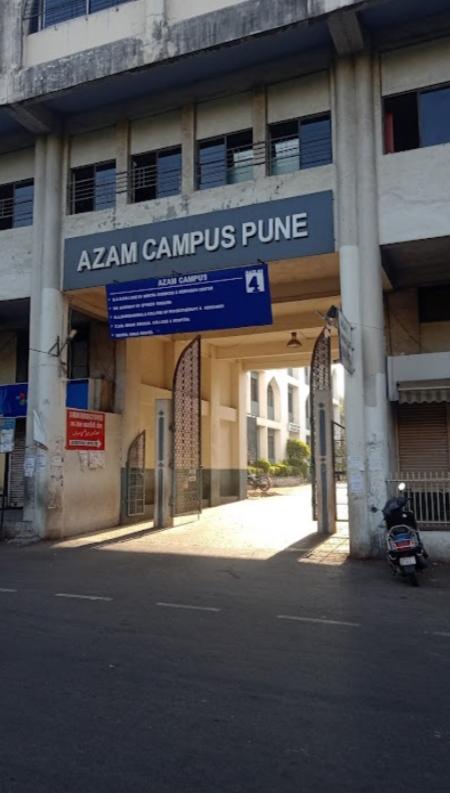
Trust on computer-based education
Mr. Inamdar is a visionary educationist who knew quite early i.e 2007 how technology would transform the ways of teaching learning. Due to his foresight, now education at Azam Campus is fully digitized with the help of computers and other technologies.
He says, “It’s a crime to teach students with chalks and blackboards in a modern fast-changing world. This process will not make them ready for the world that has already taken a giant leap in terms of technology.”
Azam Campus has thousands of computers, and all are interconnected. In addition, every lab is equipped with LCD screens to make the learning process more productive. At the same time, all kinds of books are digitally available so that students can access them anytime and from anywhere inside the campus.
Mr. Inamdar says, “All children have same level of talent irrespective of religious, social, or financial backgrounds. It is the lack of opportunities that drags them behind. However, technology can be a great leveller.” For poor and hence he opted for it.
Mr. Inamdar walks the talk. About 16,000 students in Azam Campus are from weaker and marginalized sections, but from Nursery , they are online; from class 3, they carry their email addresses; in class 5, they skillfully type in English, while from class 6, they can type in Hindi, Marathi and Urdu typing
A 5-year-old student from the Azam campus can surprise you by repairing or making a computer and mobile from scratch. There are hundreds of such poor students. This each student can do in 15 minutes.
The students are so proficient in Information technology that more than 7,500 students, even before class 6, have passed MS-CIT, an IT course exam mandatory for any state government job in Maharashtra. In addition, about 3,000 students have cleared CCC, course which is a central government’s IT literacy program.
Explaining the reason behind students sitting for these exams, Mr. Inamdar says, “When students from poor sections pass these exams and have a way with computers, it boosts their self-confidence and worth essential to do well in the future course of their journey.”
It is important to mention that apart from e-learning and e-teaching, the Azam Campus is also e-administered with only a little pen and paperwork.
In addition to above Mr. Inamdar in 2007 onwards introduced spoken English course in 37 Pune Municipal Corporation Urdu, Marathi, Hindi school and other 45 school from nursery to 8th standards 45000 such students have been trained in spoken English so far, from the financial support for this course by Azam campus. These poor back ground students speak fluent English better then me he says with smile.
Cleanliness is half of faith
Much as education is essential, so is a clean environment for it. The brain needs peace to be productive, and if the surrounding is not clean, it can’t be productive. Also, as per Islamic teaching, cleanliness is half of faith. And Mr. Inamdar is mindful of it.
The Azam Campus treats you with an immaculately clean environment. There is expansive lush green ground just as you enter. You can also find several flower gardens and numerous trees lining the streets inside the campus. In addition, the roads and streets are clean and free of squalor.
Besides the campus, the Pune Muslim Co-operative bank and other institutions Mr. Inamdar was associated with tell the same story about hygiene and cleanliness.
A staunch secularist
Mr. Inamdar is uncompromisingly secular. He is quite well-versed in scriptures and has participated in many comparative religion discussions and activities to achieve peace and harmony among different communities.
Despite Azam Campus’ minority status, a large percentage of teachers, professors, and staff come from different religions. In addition, several students also come from other cast and communities and are studying without bias or favour.
Mr. Inamdar says, “At the campus, each individual is respected and rewarded as per merit irrespective of caste, creed, and religion.”
At Azam Campus, all the students are taught to be tolerant and respect each other’s customs and religions. The harmony is easily reflected by seeing the students’ camaraderie among themselves.
“I was never discriminated by any government or the people for grants or donations because I run a minority institution. Everybody helped me according to their capacity,” says Mr. Inamdar, citing his example.
“We are a secular nation. Not only constitutionally but culturally and temperamentally as well.” He adds.
Modernisation of Madrasa education
For long Madrasas have taken care of the educational needs of the Muslims; however, with changing times, the Madrasa education system needs improvement.
“Madrasa leaders students have as much right to a dignified livelihood as the students passing out from the formal education system.” Says Inamdar.
As part of modernising of Madrasa education, he has convinced several Madrasas leaders across the country to teach new subjects like computers, English, Mathematics, etc., alongside their religious syllabus.
He says, “We know that Madrasa students are extremely disciplined and hardworking. If they are given a chance they can successfully compete with the others.” Also in regular school education they can shine.
Mr. Inamdar suggests clubbing mainstream education with religious education so that students leaving Madrasas will have valid certificates to enter colleges or universities for further studies like any normal student.
According to him, “Madrasas should take advantage of National Institutes of Open Schooling (NIOS) which conducts exams for up to 12th standard and is recognised by all universities and education institutes across India.” His this initiative has started spreading in India Hon’ble Maulana Mahemood Madani sir and his team members have taken up the course to thousand of their Madrasa students
A man full of gratitude :.
The kind of success Mr. Inamdar has achieved is awe-inspiring. With smart business acumen, vastly competent administrative skills, and an unbounded charitable heart, he has created great impact and transformation in every field he has worked in.
But when a tree is laden with fruits, it bends down. Similarly, Mr. Inamdar is a grounded man despite enormous achievements.
“I am nobody to do anything. Allah does this All glory to him,” says Mr.Inamdar
When asked about his family’s role in his achievements, he expresses a lot of gratitude to all his family members, lauding their support through thick and thin.
“My 3 sons are well grown-ups, and are overseeing my businesses, allowing me enough time to spend on my labour of love which is working for the education of poor and weaker sections of the society,” he says with much satisfaction.
He has special gratitude for his wife, Mrs. Abeda Inamdar. “I have utmost respect for my wife who started as a custom and central Excise officer, raised our three children, and extended her helping hand in my businesses and also at Azam Campus,” says Mr. Inamdar. “I used to get amazed at her proficiency in dealing with so many things simultaneously,”
Today Mrs. Abeda Inamdar is a highly successful woman in her own right, standing shoulder to shoulder with Mr. Inamdar. She is now the Vice-President at Azam Campus, where two colleges are named after her i.e. Abeda Inamdar Senior College (Now University and Abeda Inamdar Junior College as she donated her fortune to these colleges to get them functioning.
Winner of the Maharashtra Government’s ‘Savitribai Phule’ award for her services in women’s education, Mrs. Abeda Inamdar is the President of Maharashtra Medical Education & Research Centre, Pune, as well as Deccan Muslim Institute.
“I don’t know how much I am behind the success of my wife, may be nothing, but she is more than 200% behind my success,” saying this, he laughs and then adds, “ I guess without her my journey could have gone astray.”
A consummate orator
An orator par excellence, Mr. Inamdar has the uncanny ability to enthrall the audience in multiple languages such as English, Hindi, Urdu, Marathi, Kannada, etc.
During the interview, it was amply clear that he is also a fine communicator off the podium. He has a way with words and quickly draws you into his world of ideas and knowledge. And you can’t help but listen to him with rapt attention.
Final impression
Muslims have a preponderance of leaders, but very few are pragmatic, clear-headed, and visionary like Mr. Inamdar. Also, what makes him unique is his refusal to lament the backwardness of the Muslims perpetually.
His argument that self-flogging of the past could lead to a lack of confidence among Muslims to compete holds water.
Extremely hard-working and tech-savvy, Mr. Inamdar is determined to achieve fair access to quality education for
the poor and needy. He himself spends his wealth for this cause.
He could be the new age icon for the Muslim youths. His education model at Azam Campus is worthy of being replicated elsewhere for a better outcome. We hope
our community is listening.
CLICK HERE TO DOWNLOAD
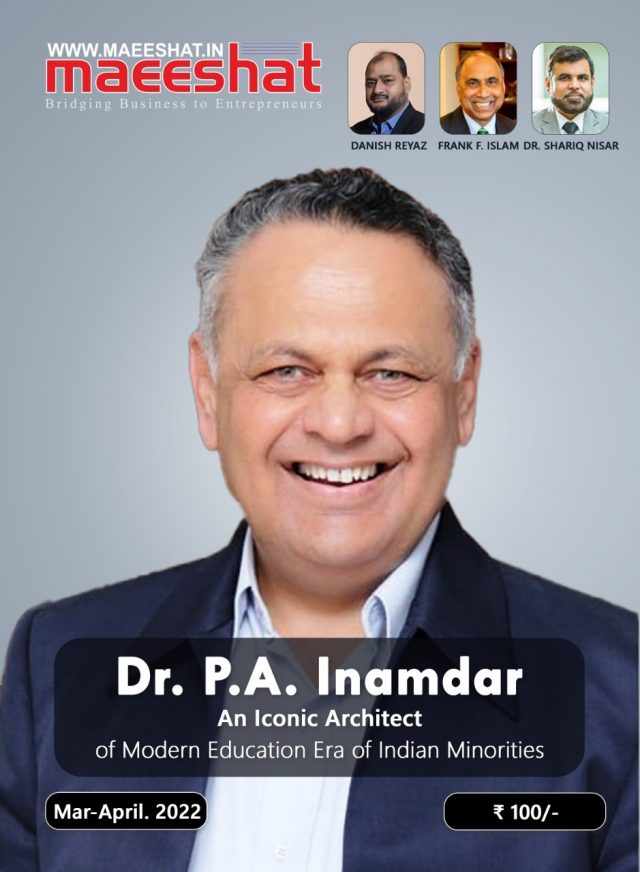
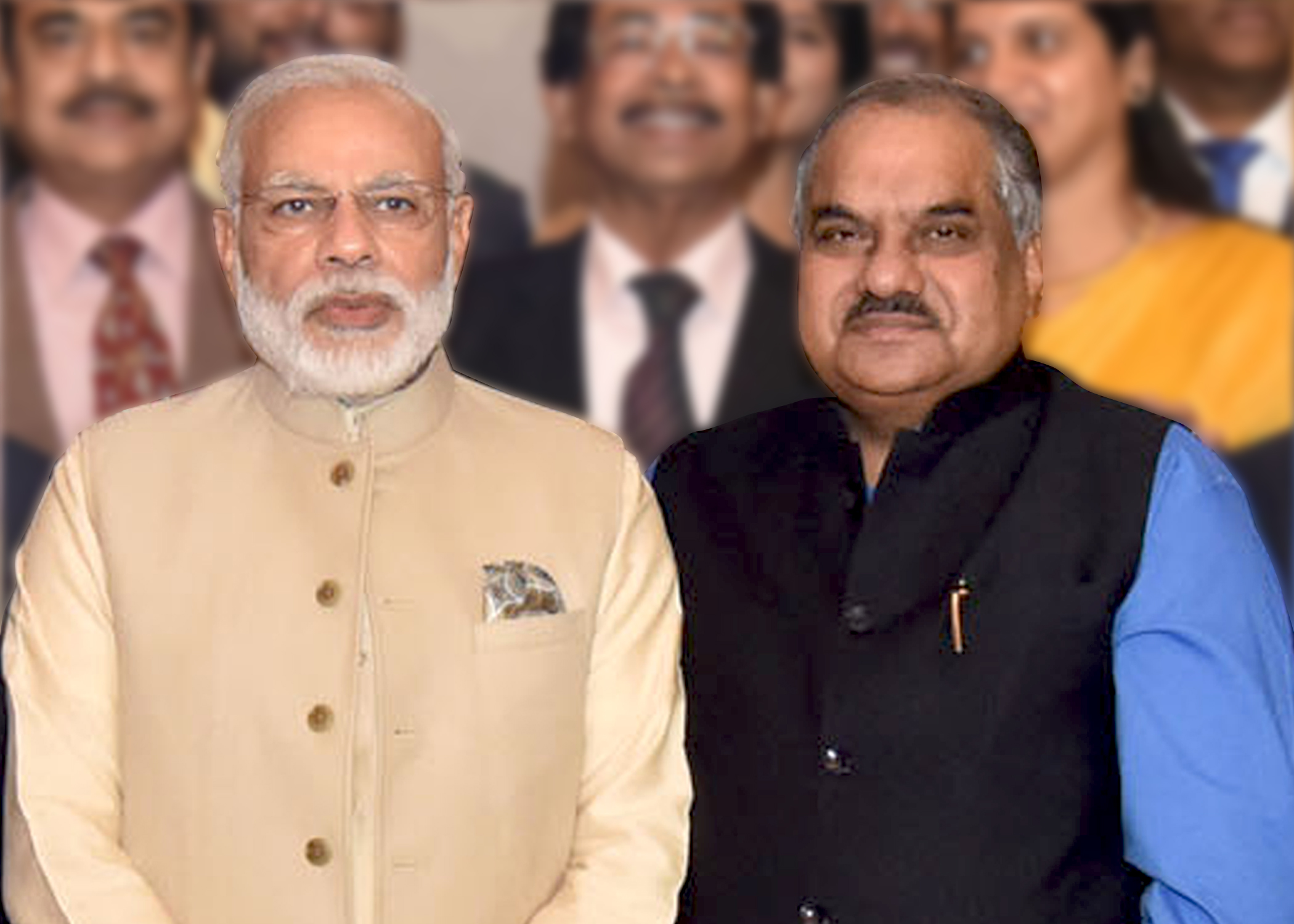
by Editor | Mar 2, 2022 | Corporate, Entrepreneurship, Interviews
By Danish Reyaz
Several successful NRIs are working in Qatar, but Hassan Chougule is the most luminous of all names. Besides being a consummate businessman, he is a multi-faceted personality: he is a proven educationist, a philanthropist, a socialist, an author as well as a poet. Not only does he don many hats, but he also excels in all of them.
He takes immense pride in being an Indian and indomitably strives to contribute to the progress of his country of adoption alongside working for the upliftment of the downtrodden and underprivileged back in his home country India.
Born on Jan 1, 1951, in Ratnagiri in Maharashtra, Hassan Chougule hails from a poor background. Yet he has gone on to become one of the celebrated NRIs in Qatar who has achieved the rare distinction of heading four apex bodies of the Indian Embassy and a reputed Indian School. No wonder he is the deserving recipient of Pravasi Bharatiya Samman 2012 and a wide array of other prestigious awards.
Despite the spectacular success he has gained, Chougule remains a modest man. When you talk to him, he speaks with an affable charm showing no sign of condescending attitude, a trait that is deserting successful people these days.
Charity Lesson from Parents
Although he has multiple feathers to his cap, Chougule is clear about his priority. According to him, charity is the greatest achievement of his life. “There is no greater satisfaction in the world than becoming the reason for a smile on the face of a person in need,” says Chougule, ardently.
“While I was growing up, I had seen financial struggles my parents had to go through for my education. Whether it were books or uniforms or shoes arranging them was a tough task,” Chougule recalls.
“Even if my parents were poor they were of helping nature. They would help the poor in whatever way they could. I saw them sponsoring funeral rituals of the dead and helping in the marriages of orphan girls. So I guess that helping gene from my parents has been transferred to me as well,” he says smilingly.
Chougule says that from his childhood experience, he realised very early in his life that there would be many needy persons like him in this world. So he silently started nurturing a desire to help those people once he grew up and started earning.
But to be able to do charity, it was essential for him to earn well in life, so he focused on his studies from the start. “I worked hard on my studies and received scholarships at various stages of my student lives. This also took some burden off my parents’ shoulders,” says Chougule with a hint of satisfaction in his voice.
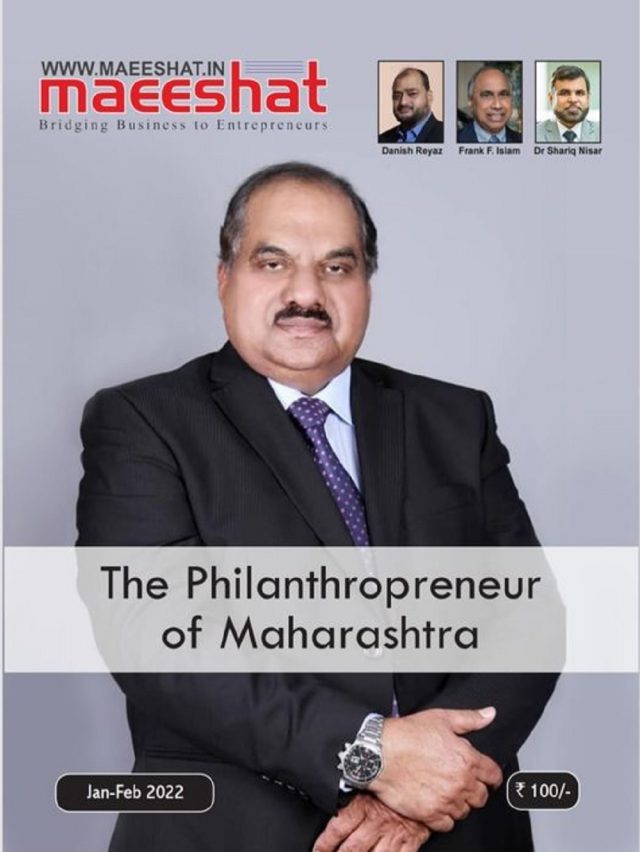
Start of the Journey
Because of his merit and hard work, Chougule secured his first job as an engineer in Larsen and Toubro in 1973, when engineering was considered a highly prestigious occupation.
And as soon as he started earning, he heeded to his inner calling to help people. He helped 70 High School students with free books and played his part in organising mass Muslim weddings.
“However, during my stint with Larsen and Toubro, I realised I had to earn enough to come good on the promises I had made to myself about helping others and leading a decent life at the same time. So in 1977, I went to Qatar because salaries were lucrative there.”
A Fight for Self-Respect
In Doha, Chougule joined Manweir Engineering, but soon he had a bad experience with this English-owned company that had scant regard for Indians. He fought against the company in Labour Court and won though it seemed like a fight of Goliath versus David.
“I was dissuaded by many not to pursue my case, but I was adamant because I wanted to make the company realise the value of an Indian,” says Chougule explaining the purpose behind his legal battle. After winning the case, he left the company and briefly returned to India.
Shift to Entrepreneurship
While he was back in India, many thoughts and ideas crossed his mind. After much deliberation, he finally started to gravitate towards entrepreneurship because the latter potentially promises a better return than a fixed-salary job.
So after a year, he arrived in Doha again with his friend Mohiudding Khateeb with whom he entered into a partnership to start Emad Electricals. Although Chougule was new to the business sector, he was a quick learner. He soon learned the tricks of the trade and grew the business by leaps and bounds.
Following his friend moving out of the partnership in 1995, Chougule took it upon himself to propel Emad Electricals to newer heights with his vision and handwork.
Emad Electricals is a leading brand in Doha for supplying the most extensive line of electrical items used by construction companies. Also, Chougule established Emad Traders dealing in refrigeration and air-conditioning spare parts and rewinding materials. Chougule later expanded into a staggering array of businesses, including his five lines of business in India.
Today Chougule’s business empire known as Emad and Success Groups encompasses everything from fiberglass, tours & travels, real estate, and education to hotels, restaurants, spas, and more.
But the ever so modest Chougule doesn’t take the credit for the stupendous success of his businesses. He says the employees working under him are the real worthy of recognition. “I treat them good, and in return they treat our customers and clients even better,” he quips smilingly but in all seriousness.
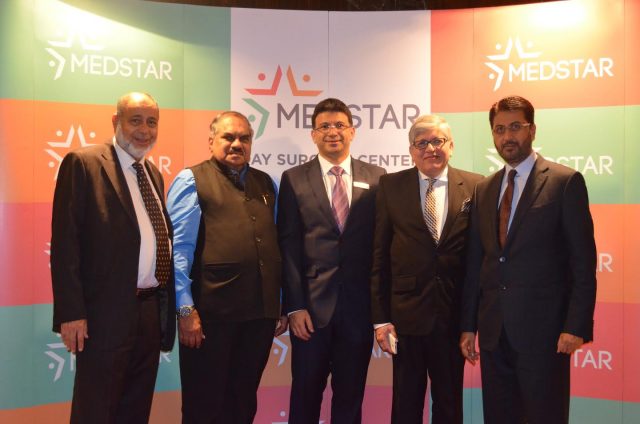
Hassan Chougule with Dr Zaheer Kazi
A Risk Taker
People think of Chougule as a man with the Midas touch as everything he touches turns into gold. Chougule laughs at this reference. He says that entrepreneurship does come with many risks, but if the plans are well-executed, success will catch you with unexpected rewards.
“Before any project, I think it through in detail and then make my moves. Once into any project, I put in a sheer amount of hard work to make it successful,” says Chougule.
“Over the years, I have become a little thick-skinned and don’t get flustered when things are not going well. I keep on persevering to make it work, believing in the Almighty all along,” he continues.
“If your intentions are selfless while helping others, the silent blessings do wonders for you. I think this has been standing me in good stead so far.”
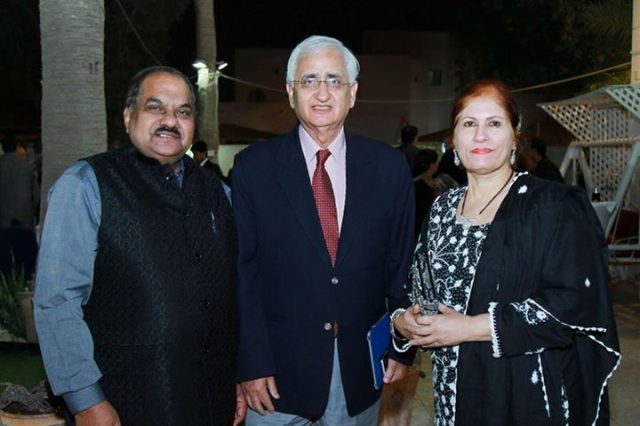
Hassan Chougule and wife Kausar Chougule with Mr Salman Khurshid
Foray into Education
“Ensuring education is the best charity done to any humankind,” says Chougule, “It is the education that has made me into what I am today. So, it becomes my responsibility to contribute to this field in whatever way I can.”
Driven by this desire, in 1984, Chougule started Indian Ideal School in Doha, followed by another school, thanks to the support of his associates and close friends.
Although these schools were performing great, he still wanted a top Indian school brand to grace the soil of Doha. He started talks with Doon Schools, but somehow that didn’t materialised. Then he pursued Delhi Public School (DPS) to establish a branch in Doha, but talks got stuck midway for some reason.
Once, it so happened that he had organised a luncheon meeting for the then Foreign Affair Minister Salman Khurshid, who was visiting Doha. During the conversation, he learned that Mr. Khurshid happens to be one of the permanent Presidents of the Delhi Public School. Thereon, things picked up again, leading to the DPS finally opening its branch in Doha with the name Indian Modern School.
DPS is synonymous with excellence, and its name attracts the best and the brightest students. Despite that, Chougule trod cautiously, employing fool-proof ways to filter and select the best deserving students and teachers so that his resolve to provide the best quality education in the region doesn’t get compromised.
Today DPS Indian Modern School is flourishing, and each year it is crossing milestones to emerge as the topmost school in the region, imparting exceptional education.
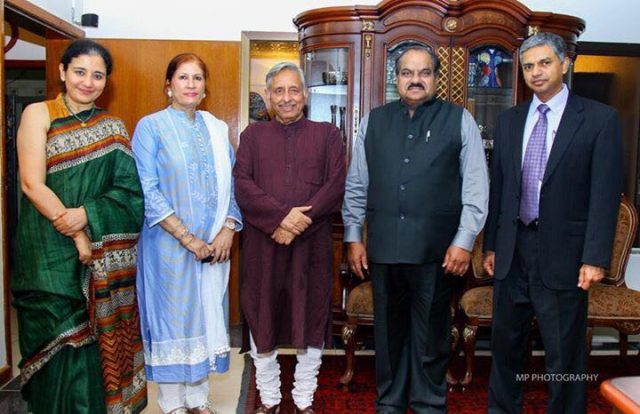
Hassan Chougule and wife Kausar Chougule with Mr Iyer
Works in India
Despite his active involvement in education in Doha, Chougule hasn’t lost sight of his homeland India, as he runs four education institutes in the coastal belt of Maharashtra.
Plus, there are about 140 Urdu medium schools and 40 English and Marathi medium schools running in the Konkan region under the patronage of his organisation Ideal Foundation since 2000.
Among other things, the foundation provides moral science teachers in as many as 60 of these schools to foster ethics and religious teachings among the students. Chougule also points out that the foundation is not only working for a single community.
“We have converted more than 70% of our Urdu medium schools into semi-English recently so that students from other communities also get access,” Chougule informs.
Besides education, the foundation focuses on providing medical assistance to terminally ill patients. With tie-ups with certain medicos, it helps the poor get the prescribed medicines for free. Moreover, the BPL households in the region are supplied free rations to deal with their hunger.
“Not only do we help, but we make sure the help is fruitful for its intended purpose. Like we don’t give the school fees of the needy students in their parents’ hands instead we deposit fees directly at the concerned schools,” he adds.
For youths’ employability, Chougule says they run various vocational centres and Industrial training institutes in the region. Opening a paramedical college, a poly technique, and an engineering college is also in the pipeline.
In the line of the Indian Foundation, Chougule also leads Indian Community Benevolent Forum (ICBF) in Qatar that is responsible for charitable works among needy people.
Chougule leaves no stone unturned in mobilising community support for social and charitable causes, whether in his individual capacity or as head of various organisations. Especially during disasters and natural calamities in India or Qatar, he becomes a ray of hope for the affected people.
He says, “During the difficult times it is important that we rise to the occasion and pay back to the society in whatever capacity possible.”
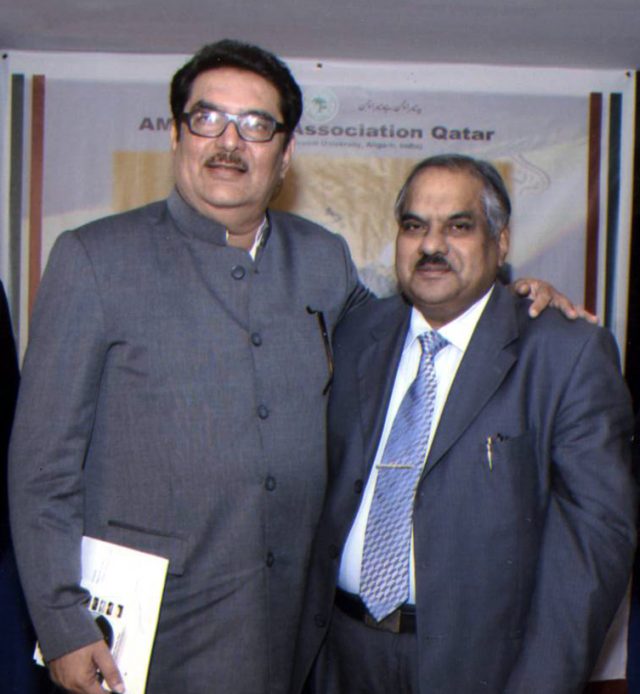
Hassan Chougule with Mr Raza Murad
An Accomplished Community Leader
Chougule has lived in Qatar long enough and headed various organisations at the top levels that he automatically becomes the representative voice of the Indian community living there. And the community has always benefitted from his able leadership.
Chougule is the only Indian in Qatar to head the four apex bodies of the Indian Embassy such as Indian Cultural Centre, Indian Business and Professional network, Indian Sports Centre, and Indian Community Benevolent Forum.
His leadership qualities were in full display when he assumed charge of the Indian Cultural Centre. The Centre is the parent body of other 100 sociocultural organisations. When he took its control, he transformed it into a buzzing hub of activities of the Indian community, which was otherwise lying dormant for years.
From thereon, whichever bodies Chougule headed, he set their wheels on the motion. With his enthusiasm and pro-activeness, he overhauled and reinvigorated these organisations to meet the objectives for which they were established.
Politely discounting his efforts, Chougule says, “It is not what I did, but the fact that the Indians from various walks of life are now holding good positions in Qatar gives me immense pride and satisfaction.”
“A large number of CEOs, CAs, doctors, engineers, pharmacists, surveyors, contractors, and other professionals in Qatar belong from India. The Indian community here is one of the reputed and brightest ones that has carved a niche for themselves by their skills, education, and hard work,” he satisfactorily adds.
Love for Literature
Hassan Chougule’s reputation goes beyond business and philanthropy; he is an avid admirer of literature. He is the chairman of Anjuman Muhubaan- E-Urdu Hind, Qatar, dedicated to promoting Urdu. Among its various activities, it organises the annual Urdu poetry symposium (Mushairas) in Doha, inarguably considered one of the finest among the Urdu poets and its enthusiasts.
Now and then, Chougule could also be seen reading out his Urdu couplets in these Mushairas amidst thunderous applause from the audience. Apart from being a poet, he also has two biographies, “Imprints of Life” and “Moments of Life,” to his credit.
His biographies bear testimonies to his struggles and achievements, which can inspire anybody who seeks guidance in his pursuit of excellence.
“With hands full with a string of social and professional responsibilities I still take time out for my soul nourishment through literature,” Chougule says with a sparkle in his eyes.
Besides Urdu, he is also an ardent advocate of his mother tongue, i.e., Marathi. “One can’t afford to be negligent of their native language, especially in a foreign land as this could also mean going astray from one’s cultural roots,” he says.
Thanks to his efforts, Marathi as a third language is taught in about five Indian schools alongside Urdu in about eight schools. For his work in Marathi abroad, he was given the Sanmanarth Award and featured in Shiv Sena’s Samna magazine with the title, “Flyer of Marathi Flag in Arab World.”
Facilitator of Qatar-India Bilateral Ties
The Indian community has a robust presence in Qatar, sending a lot of remittance to India. At the same time, these expatriates are also an essential cog in Qatar’s wheels of progress.
Because of that, bilateral ties between the two nations assume enormous significance. Indian leaders, diplomats, officials responsible for inking pacts and agreements with the Qatari government don’t shy away from taking time to time inputs from Chougule due to his vast experience as the most successful community leader.
“As I have been living here for four decades, I have my ears to the ground and know the problems and requirements of the Indian community. I try to apprise both the governments regarding the same and the concerns sometimes reflect in the policies of both the governments,” says Chougule.
He further adds that the relations between Qatar and India have only been deepened over the years, as they are solidly founded on the historical association, traditional friendships, and people-to-people interactions on so many different levels. He foresees even broader and stronger relations between the two nations in future as the trade and economic interdependencies widen with time.
Awards Keep Chasing Him
With his motto of service before self and charismatic leadership at various levels, Chougule has left an awe-inspiring impact on millions of people. While, according to him, the love of people for him is his biggest award, various awards keep hunting him, nonetheless.
In recognition of his yeomen’s service to the people, community, and the nation at large, Chougule has been conferred with many awards in his life, the most significant being the Pravasi Bharatiya Samman 2012 from the hands of then-President Pratibha Patil.
The Human Rights Award by Qatar Human Rights Committee, Indian Community Forum Benevolent Charity Award, and Pride of India Award by President of Mauritius are also a few momentous awards in his kitty.
In addition to these awards, he has received several other recognitions as follows:
- One of the 100 Global Indians by The Indian Hong Kong,
- One of the 100 Most Powerful Arabian Indians by Arabian Business UAE
- One of the 100 Super Indians of MEENA countries by Grey Matter, UAE
- One of the 100 Top Indian Leaders of Arab World by Forbes Middle East
- One of the 50 Entrepreneurs of the Middle East, BNC Publication, UAE
While these awards are all important, Chougule has no airs about them. However, although sheepishly, he doesn’t forget to mention a few literary awards in his possession, such as the Majrooh Award, Urdu Carvan Award by Akhilesh Yadav, then-Chief Minister of UP, and Baghbane Urdu Award from European Urdu Writers Society. His manner of mentioning these awards once again confirms how literature is dear to him.
A Grateful Spouse
Hassan Chougule is not a man to run away with all the recognitions without giving due credit to his wife. He happily brings up his wife’s role behind his success during the interaction. In fact, in his biographies, his wife, Mrs. Kausar Hassan Chougule, has been copiously mentioned for her contributions to his life.
Talking about her, Chougule says, “I am lucky to have Mrs. Kausar Hassan Chougule as my wife who has been a tremendous source of strength for me. She makes me believe in the impossible even when it is difficult for me to see the light at the end of the tunnel. If not for her, I wouldn’t have been doing so many things in life.”
“She comes across as someone tender in spirit, but she is lionhearted in her zeal. And that’s why she is a successful entrepreneur in her own right,” he says.
Mrs. Kausar Hassan Chougule is a well-known name in the hospitality business in Doha. She first began her career in a restaurant in Mumbai, and after shifting to Doha, she opened Mid Town Restaurant. After that, she took over the famous Gulf Paradise Hotel. She now manages many hotels and restaurants and participates in various social and charitable works in Qatar and India. She is also the recipient of the BINT HIND Entrepreneur Award 2008 by NEEDS Mumbai.
“They say behind every successful man there is a woman. But in my case, she is not simply a woman but a full-fledged successful woman,” Chougule says it wittily and signs off with a hearty laugh.
A Perfect Role Model
Hassan Chougule has been spectacular in all his successes, but what strikes most to everybody is his remarkable humility and his childlike eagerness to approach new things.
No doubt, surmounting every ills and odds, he has built an empire that easily rivals the best in the world. Still, at the core of his heart, he remains a giver, always bubbling over with a desire to help and serve the people of the community.
Needless to say that as a successful business giant with all the humane traits intact, Chougule is a perfect role model for the millions of compatriots and the youths in India.
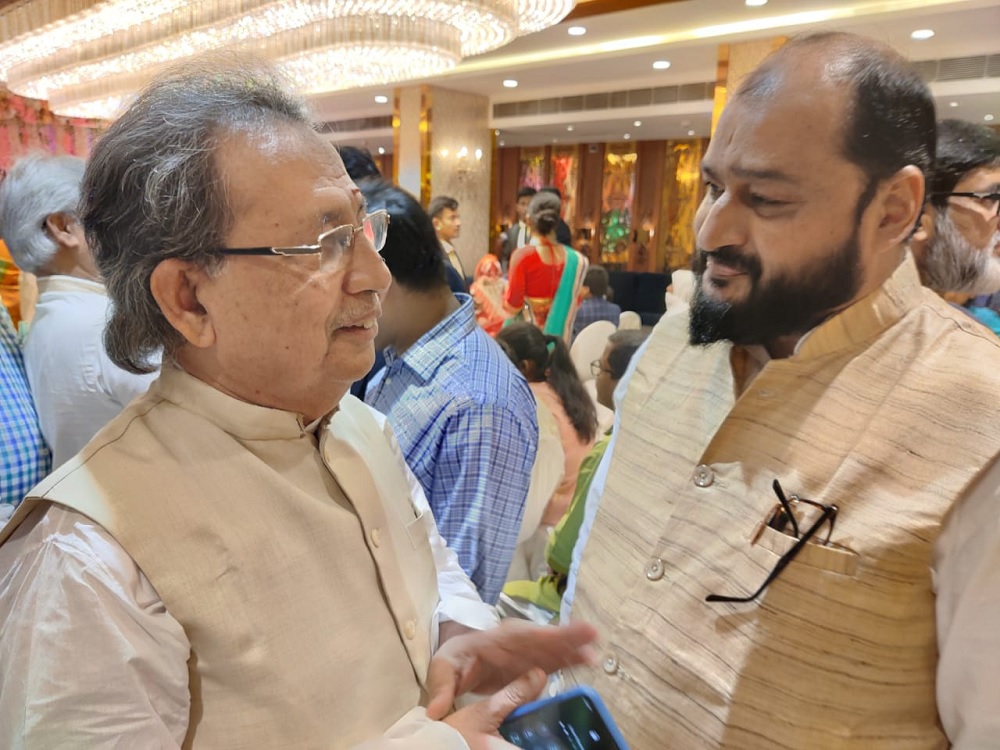
by Editor | Jan 11, 2022 | Interviews
The otherwise poor and rudderless Muslim community in West Bengal is awakened now and raring to succeed thanks to the Howrah-based Al Ameen Mission, anchoring an educational renaissance in the state. Danish Reyaz speaks to its Founder-General Secretary M.Nurul Islam about Mission’s journey, vision, and impact on Bengali Muslims.
Al-Ameen Mission has strived to educate the community from its very beginning, how far has it been successful in this mission?
Al-Ameen Mission began its journey in 1986. When it started its journey with only eleven students in a remote village, the overall education scenario of the Muslim community in West Bengal was quite dismal. There were various reasons- historical, social and economic as well. We realised that we should strive to educate the community, as you rightly mentioned, for the betterment of it. Frankly speaking, with the grace of Allah, we have been successful in this endeavour. There were many ups and downs in our journey. But we had never stopped. So far, we could say we are successful in our mission. We have scores of doctors, engineers, professors, teachers, civil servants, entrepreneurs. Our boys and girls are working throughout the country and have also established themselves abroad. I can say in a nutshell that we have infused new blood in an otherwise moribund society, which had seen for more than three decades post independence.
West Bengal is considered to be a backward area from the time of independence, but the backwardness of Muslims has increased further, what are the reasons for this?
The reasons are not difficult to find out, you know. We have to bear in mind that India was partitioned during independence of the country back in 1947. Muslims, not all, of course, went to East Pakistan during that period. The problem was that the intelligentsia went away as the fallout of partition. Those who remained here were confined mainly in the rural areas. Most of them were small farmers. Many went for blue collar jobs. Lack of education made the whole community to remain stagnant. What we did was to plant a seed of education which has eventually turned into a gigantic tree.
Al-Ameen Mission has educated thousands of children, how it has been successful in making an impact?
As I have already mentioned, we have gradually been able to turn the table. When we started our journey 35 years ago, the percentage of Muslim students in Medical as well as in Engineering was only 2% or 3%. But due to our endeavour mainly that percentage has risen to 20 to 30%. It has imbibed confidence. Boys and girls mostly from backward areas and lowest strata of the society are now dreaming to becoming doctors, engineers, civil servants, scientists, teachers, professors and some have even ventured into being entrepreneurs. Obviously, a silent revolution is taking place.
Al-Ameen Mission is establishing a new campus in New Town, how it realized the need for this?
Yes, a project is under construction in the New Town. We have a 2 acre of land there. It will be called Al-Ameen Mission Institute for Education Research and Training. It would provide residential coaching for Civil Services, NEET (UG & PG), JEE-IIT and IIM aspirants. It will also cater training to teachers and administrative staffs of various academic institutions. The Research scholars would be provided accommodation and research facilities under one roof.
What is the future plan of Al-Ameen Mission?
Our work on the education sector would continue. But we are also venturing into health sector in a big way.
Does Al-Ameen Mission have a plan for entrepreneurship development?
Al-Ameen Mission has become an embodiment of social entrepreneurship. We’re a family of 20 thousand members- 17 thousand resident students and three thousand teachers and non teaching staff. Churning out resources- financial, human as well as intellectual- from within a backward society, a new awakening is taking place slowly, steering it towards a livelier and better society. An educated, middle class society is fast emerging; thousands of people getting employed. Please remember, this gigantic activism is taking place not through a family or solo enterprise but through social entrepreneurship. There is no foreign funding; government help is also negligible, so to say. Corporate funding is nil. Fees from students-those who are better off would pay more fees, those who can’t provide much would pay nominal fees, and those from poor families would pay half the fees- plus Zakat and donation from a wide array of persons from all walks of the society has been instrumental for Al-Ameen Mission to flourish.
Any type of entrepreneurship involves risks and problems; hurdles and hostilities. But good intention and faith in Allah would turn all these negativities into Allah’s mercy and blessings. We have literally perceived this throughout our journey.
Our Prophet Mohammad (SAW) was himself a successful entrepreneur. Naturally, for us, business enterprise, by all means, is a Sunnah. For a society or for that matter a country to prosper, the role of an entrepreneur is vitally important. Therefore, we are encouraging students to become entrepreneurs besides other employment opportunities.

by admin | May 25, 2021 | Business Summit, Events

Frank F Islam (R) receiving memento from Danish Reyaz, Managing Director, Maeeshat Media, in Mumbai on Feb 21, 2019.
Mumbai— “The minorities entrepreneurs play a significant role in the development of India. They play a pivotal role in shaping the future of India. They have the capacity and capability to change the landscape of India and the world,” these were the opening words of India-born renowned American businessman Frank F Islam when he was sharing his success mantra with a select group of Muslim entrepreneurs in the financial capital of India – Mumbai.
The occasion was 8th All India Minorities Business Summit & National Brand Awards hosted by Maeeshat Media Private Limited.
In the very beginning of his speech, and before narrating his own journey of success – from Azamgarh to Aligarh to America – Frank appreciated and encouraged the awardee businessmen and all budding entrepreneurs from minorities.
“Before I get to my formal remarks, let me state that for those award honorees, this day is your day. Let me extend my congratulations to those of you receiving the awards here this evening. You are doing God’s work. You are doing people’s work. For those of you minority entrepreneurs who are not receiving awards today, this day is your day also. I am certain you will be recognized at this summit at some future date. For those in the audience who are contemplating becoming entrepreneurs, I say join us. We need you, your fellow minorities need you, and India needs you,” said Frank and added with stress: “Indeed, what is needed for the future of India and the world is Entrepreneurial Leadership and Civic Engagement.”
He said his own journey of becoming a successful entrepreneur had five phases: Getting a good education, Doing my apprenticeship, Becoming an entrepreneur, Building a strong and talented team who shared my vision and values, Staying the course, Broadening my horizon.
Frank’s Successful Entrepreneurial Journey
Frank was born in Azamgarh, Uttar Pradesh and got early education in his town and then in Varanasi before moving to Aligarh Muslim University for graduation. From AMU, he went to America and the rest is an inspirational story. He narrated his journey:
“I went to the United States from India to pursue the American Dream. I got my bachelor and master degrees in computer science at the University of Colorado. That gave me the knowledge that I needed to go into business. When I graduated with my advanced degree, I was not prepared to go directly to owning a business. That’s because I didn’t know how businesses operated. I had no real exposure to business prior to starting college. I knew I needed experience before launching my own venture. So, I worked with two major information technology firms in the Washington DC area for about a decade to learn the ropes and the ins and outs of doing business with the government. That gave me the skills and real-world grounding that I needed to start my own business.
After doing my apprenticeship, in 1994, I purchased the QSS Group for $45,000. Within thirteen years, along with my key management team, we took that firm from a workforce of 1 employee – me – to more than 3,000 employees and approximately $300 million in revenue. That was an excellent trajectory for the business. I had a role to play in that success.
But, when people ask me how I became successful, I respond that it was not me, but we who made it happen. My team of talented senior managers was central to everything. Success in business is a team sport…I must talk about passion and persistence. Those are the ingredients for “staying the course.” They were essential because my journey was not a straight line. It was not always easy. And, the final destination was not certain.
During the early years, there were several issues to be dealt such as: Will we win the contract, will I get the bank loan, will I be able to make payroll. There were some 24-hour days and many sleepless nights. For the first several years I was in business, I worked seven days a week. What enabled me to prevail on the journey was a belief in myself and those around me and the opportunity presented by the American Dream.
Success taught me to move forward. As importantly, failure taught me to never go backward. From the time I started my business, I knew implicitly that you needed to move ahead and that if you did not you would be left behind. Thus, failure is the first step to success.
In 2007 I sold my company to Perot Systems. That allowed me to establish a private foundation that supports educational, cultural and artistic causes in the United States, here in India, and around the world.
That was my journey and now I am in a new phase of which is the philanthropic engagement. And, I can tell you in all honesty and humility that is the most personally rewarding time of my life. As I made my journey, I always tried to do the right thing. An old American saying is that managers do things right and leaders do the right thing.”
Empowerment of Minorities
In his speech, Frank stressed civic engagement and steps for empowerment of minorities.
“I know that you Summit award winner and others here tonight, are already engaged. I know that I am preaching to the choir. But, as I conclude my remarks, I would like to make one request. That request is to ask you to join with me in committing to do even more by intensifying your focus on the empowerment of minorities,” he said and counted education, employment and elevation as three key areas for empowerment.
Elaborating the third key point ‘Elevation’, he said: “Elevation is enabling the minority individual who has been educated and who is employed to raise their sights, to realize that any thing is possible, to understand that education and employment are steps in the journey. As those of you minority business leaders here tonight know, the journey of a thousand miles begins with a single step.”
Addressing the Muslim businessmen, Frank said: “You are the difference makers. That is why I ask you to continue to provide those minorities in need with a hand-up and not just a hand-out. Help empower them through the 3 E’s: Education, Employment and Elevation. Do well in your business so that you can do good for other minorities and for India. Invest in other minorities by sharing and giving back. Make your success India’s success.”















